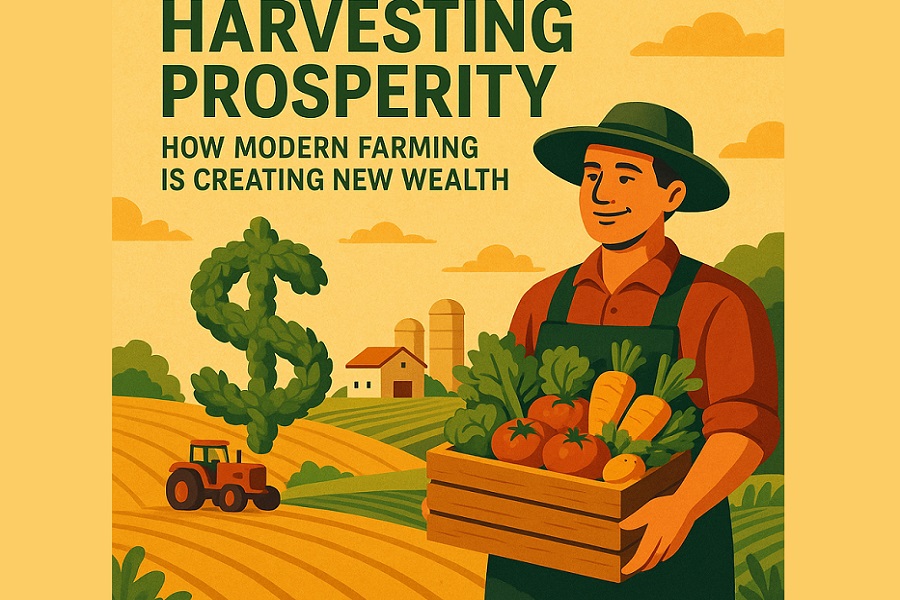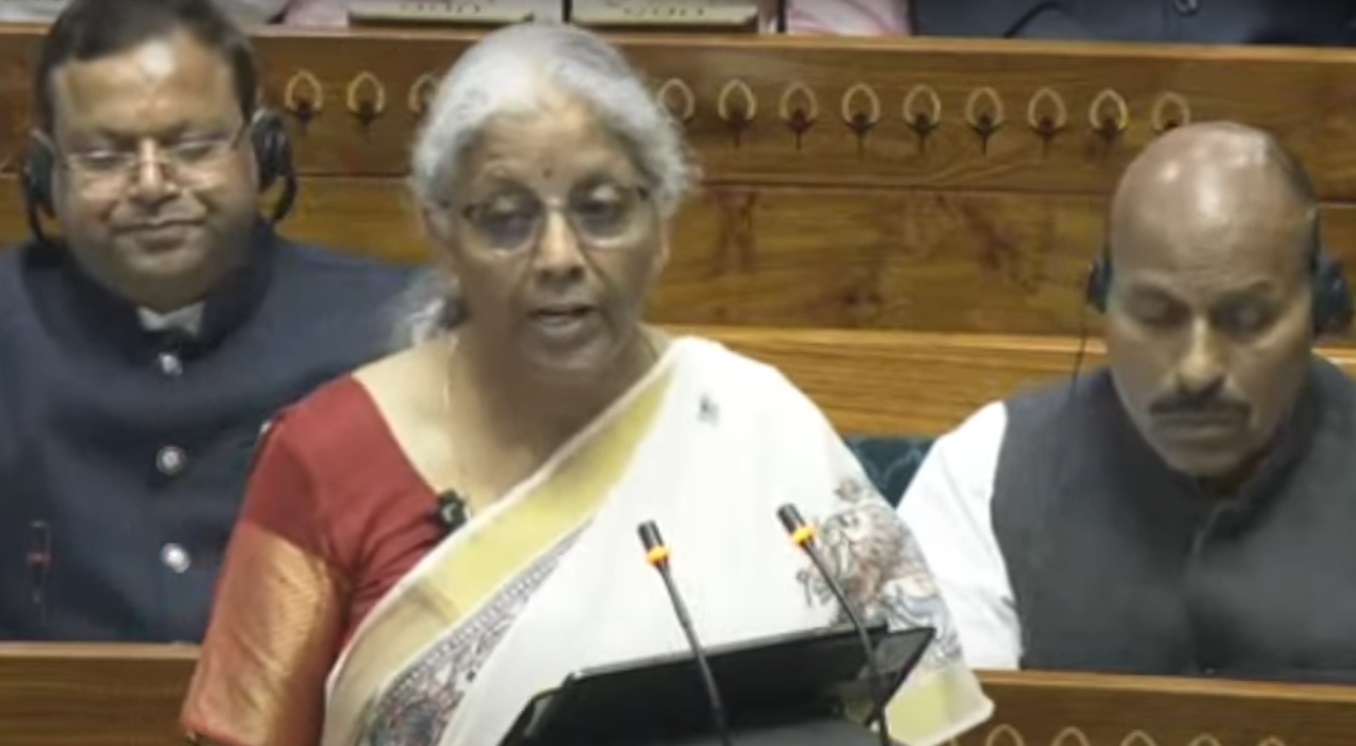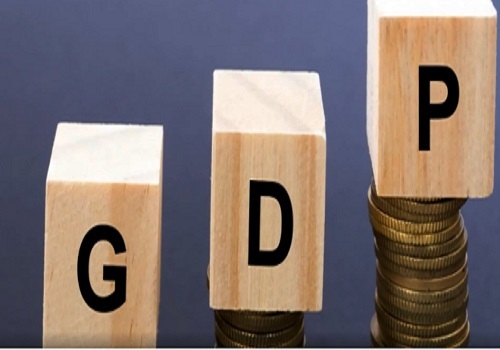"Harvesting Prosperity: How Modern Farming is Creating New Wealth"

Farming, once viewed purely as a means of subsistence, is rapidly transforming into a lucrative business avenue. With the rise of agritech, sustainable practices, organic produce demand, and government support, farming is now seen as a viable path to wealth creation. Across the globe—and particularly in countries like India, where agriculture is the backbone of the economy—enterprising farmers and agri-entrepreneurs are turning soil into gold.
1. The Changing Face of Agriculture
Modern farming is no longer limited to tilling fields with traditional tools. The sector has evolved with:
Precision farming using drones and sensors
Hydroponics and vertical farming for urban settings
Agri-tech platforms helping farmers sell directly to consumers
Contract farming tying producers to large corporates
Sustainable practices attracting eco-conscious consumers
These innovations reduce risks and boost profitability, attracting not just rural youth but also urban professionals returning to their roots.
2. Key Drivers of Wealth in Farming
a. High-Value Crops
Switching from conventional crops like wheat and rice to high-value alternatives such as exotic vegetables, medicinal plants, floriculture, and organic produce significantly increases margins.
b. Organic and Natural Farming
With a surge in health-conscious consumers, organic farming commands premium prices in both domestic and international markets. Organic certifications and brand-building are crucial for success here.
c. Agribusiness and Processing Units
Adding value through food processing—like converting tomatoes into puree or dairy into cheese—ensures higher income than raw produce sales.
d. Direct-to-Consumer (D2C) Sales
Farmers selling through apps, e-commerce, or farm shops cut out middlemen and increase profitability. Social media branding further enhances reach.
3. Real-Life Success Stories
Subhash Palekar (India): Pioneer of Zero Budget Natural Farming, he transformed not just his own land but helped thousands of farmers become self-reliant.
Rahul Sharma (Maharashtra): An IT professional turned farmer, Rahul now runs a profitable organic farm, exporting vegetables and offering farm stays.
Green Greens (Tamil Nadu): A cooperative of women farmers who grow microgreens and supply to five-star hotels, showing the power of collective farming.
4. Government and Institutional Support
Countries like India have ramped up support for farmers with:
Subsidies on drip irrigation and solar pumps
Farmer Producer Organizations (FPOs) for scale and bargaining power
Crop insurance and credit schemes
Skill development and training in modern methods
These initiatives lower the entry barrier for aspiring agri-entrepreneurs.
5. The Role of Agritech Startups
Platforms like DeHaat, Ninjacart, and AgroStar provide:
Market linkage
Weather and crop advisory
Input supply at lower cost
Data-driven insights for better planning
Tech-enabled farming reduces dependency on guesswork and enhances yield and income.
6. Challenges to Address
While farming holds wealth potential, challenges remain:
Land fragmentation
Market volatility
Climate change impact
Supply chain inefficiencies
Addressing these through policy, innovation, and public-private partnerships is key to unlocking farming’s true wealth potential.
Conclusion
Farming today is not just about producing food—it's about producing prosperity. From organic vegetables to agri-tourism, the field is wide open for those ready to innovate and invest. With the right mix of technology, strategy, and support, farming can indeed become the new frontier of wealth creation.
























